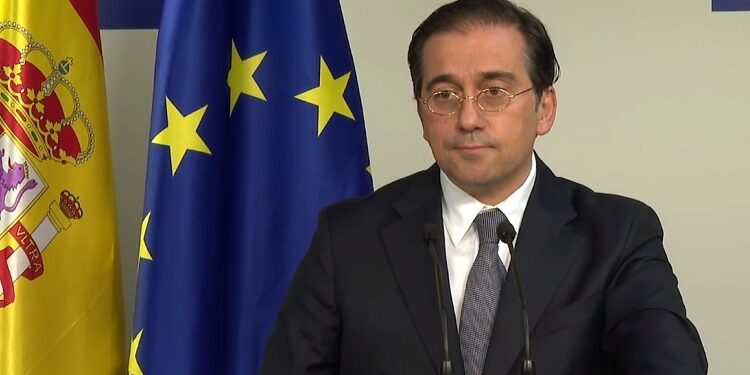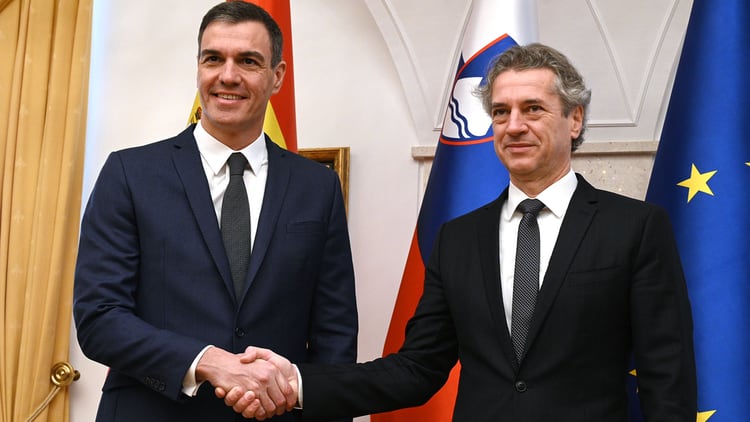The Diplomat
The Minister of Foreign Affairs, José Manuel Albares, begins today in Brussels and will conclude on Thursday and Friday in New York an intense international week marked by the first anniversary of the start of Russia’s war in Ukraine.
On the one hand, Albares will participate today in the EU capital in the Foreign Affairs Council (FAC), chaired by the EU High Representative for Foreign Affairs and Security Policy, Josep Borrell, which will bring together the heads of diplomacy of the 27 Member States of the European Union. The highlight of the meeting will be the discussion on the Russian aggression against Ukraine, after a first informal conversation with the Ukrainian Minister of Foreign Affairs, Dmytro Kuleba, who will attend the meeting in person.
In addition, ministers will hold an informal discussion with Moldova’s Deputy Prime Minister and Minister of Foreign Affairs and European Integration, Nicu Popescu, and will discuss Afghanistan and hold an informal exchange of views on the subject with UN Deputy Secretary-General and Chair of the UN Panel for Sustainable Development, Amina Mohammed, who will join ministers by videoconference. The Council will also address climate and energy diplomacy and the situation in Iran.
On Thursday and Friday (the day that marks exactly one year since the beginning of the invasion), José Manuel Albares will participate in New York in a special session of the UN General Assembly dedicated to Ukraine.
At the meeting, a draft resolution will be voted on and most likely approved, calling – according to the draft already circulated by the European Union – for an end to hostilities in Ukraine, the achievement of a peace that guarantees “the sovereignty, independence, unity and territorial integrity” of this country, the support of the UN and member states for diplomatic efforts to achieve peace, an end to Russian attacks on Ukraine’s civilian infrastructure, and the immediate withdrawal of Russian troops.
According to diplomatic sources, Ukraine had tried to get the General Assembly to include in this draft the ten-point peace plan announced last November by President Volodymyr Zelenski during the G20 summit, but the proposal has been shelved in favor of a broader and less detailed text, which has already been circulated among states. Apart from that, the draft calls for accountability for the most serious crimes committed in Ukraine but does not include Kyiv’s proposal to create a special tribunal to try the Russian invasion.
The General Assembly does not allow the right of veto to any of its members (unlike the Security Council, the body charged with maintaining international peace and security, which is paralyzed by Russia’s veto power), so it is highly likely that the text will be adopted. Assembly resolutions are non-binding, but carry the political weight of representing all 193 UN states.







